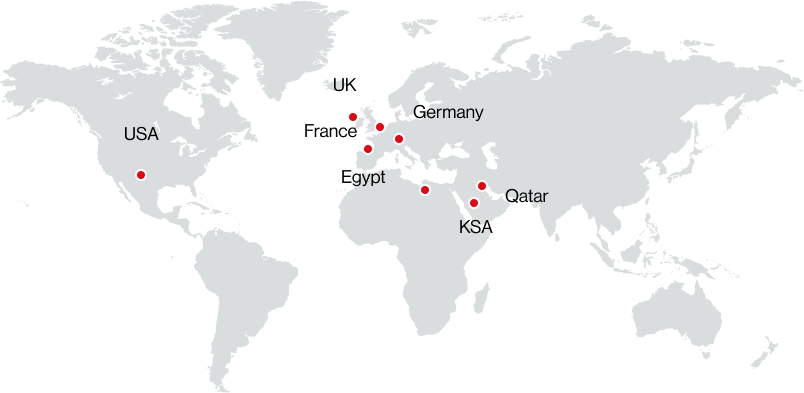In today’s competitive and fast-paced business environment, outsourcing software development has become a strategic necessity for many organizations. Selecting the right outsourced development team is not just about finding skilled professionals; it’s about ensuring they align with your business objectives, work culture, and project requirements. This is particularly relevant when considering specialized software companies like Enozom Software. In this comprehensive guide, we’ll explore the key factors to consider when selecting an outsourced development team.
What is Software Outsourcing?
Software outsourcing is the practice of hiring an external organization or team to manage all or part of the software development process. This approach is often adopted by companies looking to leverage specialized skills, reduce costs, or improve efficiency in their software projects. Here’s a breakdown of key aspects of software outsourcing:
Key Features
- External Partnership: Outsourcing involves partnering with a third-party service provider, which can be a company or a team of individuals, that specializes in software development.
- Global Talent Access: It enables access to a global pool of talent, offering a broad range of expertise and skills that may not be available in-house or locally.
- Cost Efficiency: Outsourcing can be more cost-effective than maintaining an in-house team, especially for short-term projects or for companies in regions with higher labor costs.
- Focus on Core Business: By outsourcing software development, companies can focus more on their core business activities while the outsourced team handles the technical development.
Types of Outsourcing
- Offshore Outsourcing: Hiring a team located in a different country, often with significant time zone differences. This is typically chosen for cost savings.
- Nearshore Outsourcing: Partnering with teams in neighboring or nearby countries, often to have closer cultural ties and similar time zones.
- Onshore Outsourcing: Outsourcing within the same country. This option can offer better collaboration and fewer cultural and language barriers.
Services Offered
- Full Project Development: From conceptualization to deployment, including design, coding, testing, and maintenance.
- Specialized Services: Focused on specific areas like mobile app development, user interface design, or cybersecurity.
- Staff Augmentation: Providing additional skilled personnel to supplement the client’s existing team.
Consideration For Choosing The Right Outsourced Development Team
Software outsourcing is a strategic approach that offers flexibility, cost benefits, and access to a diverse range of skills and technologies. However, it requires careful selection of the right partner and effective management of the relationship to ensure the success of software projects. Here are the things you have to keep on mind while choosing your team.
Understanding Your Project Needs
- Define Project Scope and Objectives: Clearly outline what you want to achieve with your project. This includes the functionalities, user experience, and end goals. A well-defined scope helps in communicating your vision effectively to the outsourced team.
- Technical Requirements: Assess the specific technical skills and technologies needed for your project. Whether it’s a mobile app, a web platform, or a software solution, understanding the technical requirements upfront is crucial.
Researching Potential Teams
- Expertise and Experience: Look for teams that have proven experience in the type of project you are undertaking. Review their portfolios and case studies to gauge their expertise.
- Industry Knowledge: A team with experience in your specific industry can be a significant advantage. They’ll be familiar with industry standards and challenges, which can lead to better solutions.
- Client Testimonials and References: Seek feedback from previous clients to understand their experience working with the team. Client testimonials provide insights into the team’s reliability, quality of work, and communication skills.
Evaluating Communication and Collaboration
- Communication Skills: Effective communication is key to successful outsourcing. Assess their proficiency in your language and their communication tools and practices.
- Cultural Compatibility: Ensure that the team’s working culture aligns with yours. Cultural compatibility facilitates smoother collaboration and understanding.
- Time Zone Considerations: Consider the impact of time zone differences on your project. Teams in a close time zone can offer more synchronized communication.
Assessing Technical Competence
- Technical Skills Assessment: Evaluate the team’s technical abilities through interviews, technical assessments, or reviewing their past work. Ensure they possess the skills required for your project.
- Development Methodology: Understand their development process. Whether they use Agile, Scrum, or Waterfall methodologies, it should align with your project management style.
- Security Standards: Ensure the team adheres to high standards of data security and intellectual property protection. This is crucial in safeguarding your project’s integrity.
Financial Considerations
- Cost Evaluation: While cost shouldn’t be the only factor, it’s an important consideration. Get detailed quotes and understand the cost structure. Be wary of significantly low bids as they might compromise on quality.
- Payment Terms and Conditions: Clarify the payment terms. Understand the billing process, whether it’s hourly, milestone-based, or a fixed cost.
Finalizing the Partnership
- Trial Project or Pilot Phase: Before committing to a long-term partnership, consider starting with a small project or a pilot phase. This allows you to evaluate their capabilities and compatibility with your project.
- Contract and Legalities: Ensure all agreements are formalized in a contract. This should include scope, timelines, costs, confidentiality clauses, and intellectual property rights.
Post-Selection Phase
- Onboarding and Knowledge Transfer: Once selected, ensure a smooth onboarding process. This might include sharing project documentation, access to tools, and conducting initial meetings to align on objectives.
- Regular Monitoring and Feedback: Regularly monitor the progress and maintain open lines of communication. Provide feedback and be open to receiving suggestions from the team.
- Scalability and Flexibility: The team should be flexible and able to scale up resources as per project requirements.
Software Outsourcing with Enozom Software

Enozom boasts a skilled team of web and mobile app developers proficient in various platforms, dedicated to creating solutions that are highly efficient, reliably available, and offer an enhanced user experience.
Enozom provides specialized experts who are committed exclusively to your project for a set duration, helping you bypass the complexities and risks associated with establishing an in-house Development Unit. This approach eliminates the challenges of frequent employee turnover and escalating operational costs, which can directly impact the cost, quality, and timeline of your project completion.
With our Dedicated Team Model, you retain complete control over resources, expenses, and time. This model allows you to assemble your team for the development of new solutions or to modify existing ones, granting you full authority over the project’s scope.
Enozom has a track record of delivering high-quality outsourced web and mobile solutions to clients in the USA, UK, Egypt, KSA, UAE, France, and Germany. For detailed insights into our completed projects and applications, please visit our Case Studies page.
